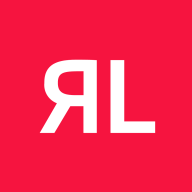

Black Duck and ReversingLabs compete in the software security sector. Black Duck focuses on open source security, while ReversingLabs emphasizes malware analysis and file security. Black Duck's ease of deployment and support might sway businesses towards it, though ReversingLabs offers a more robust feature set for comprehensive file analysis, appealing to companies that prioritize extensive threat intelligence.
Features: Black Duck includes comprehensive open source monitoring, vulnerability identification, and license management tools. ReversingLabs provides in-depth file analysis, threat intelligence, and static malware analysis with seamless SIEM integration.
Room for Improvement: Black Duck could enhance its automatic analysis accuracy and expand its functionality beyond open source concerns. Improved integration with other security tools could also be beneficial. ReversingLabs needs a more user-friendly interface and simplified deployment process. Full documentation access for complex features would aid usability.
Ease of Deployment and Customer Service: Black Duck's straightforward deployment and robust support make setting up and running hassle-free. While ReversingLabs provides strong service, its deployment requires specialized skills, potentially complicating initial use.
Pricing and ROI: Black Duck offers lower setup costs and strong ROI in open source management, making it attractive for budget-conscious companies. ReversingLabs, despite higher costs, provides value with its advanced file security and threat detection, justifying investment for organizations needing comprehensive analysis capabilities.


Organizations use Black Duck for compliance, internal audits, license management, and security, scanning software to identify vulnerabilities, non-compliant code, and dependencies in open-source projects.
Black Duck integrates into CI/CD pipelines and DevSecOps processes, helping multiple industries detect and handle risks associated with open-source usage. Users leverage it for source and binary analysis to ensure security and compliance before software release. Automatic component analysis, effective vulnerability scanning, and a comprehensive knowledge base are some of its valuable features. Despite needing improvements in scanning speed, UI, and documentation, Black Duck remains crucial for ensuring open-source security and compliance.
What are Black Duck's most important features?
What benefits or ROI should users look for in reviews?
Black Duck is implemented by industries ranging from finance to healthcare, addressing security and compliance in open-source usage. Financial institutions employ it to manage license risks and ensure audit readiness. Healthcare organizations use it to comply with stringent data protection regulations, ensuring patient data security and privacy. Tech companies integrate Black Duck within CI/CD pipelines to maintain the security and compliance of software products before release. Its deployment varies, tailored to meet the specific risk management and compliance needs dictated by each sector's regulatory environment.
ReversingLabs is the trusted authority in software and file security. We provide the modern cybersecurity platform to verify and deliver safe binaries. Trusted by the Fortune 500 and leading cybersecurity vendors, the ReversingLabs Titanium Platform® powers the software supply chain and file security insights, tracking over 35 billion files daily with the ability to deconstruct full software binaries in seconds to minutes. Only ReversingLabs provides that final exam to determine whether a single file or full software binary presents a risk to your organization and your customers.
RL - Trust Delivered.
We monitor all Software Composition Analysis (SCA) reviews to prevent fraudulent reviews and keep review quality high. We do not post reviews by company employees or direct competitors. We validate each review for authenticity via cross-reference with LinkedIn, and personal follow-up with the reviewer when necessary.